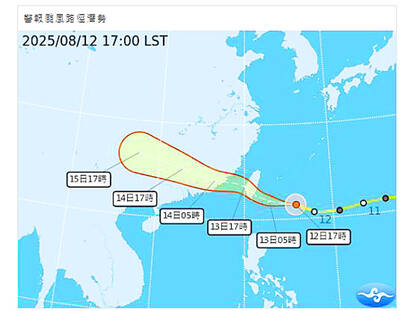Members of Amnesty International (AI) Taiwan and other rights groups yesterday launched a letter-writing campaign, seeking a re-trial for death row inmate Chiu Ho-shun (邱和順), who was reportedly tortured by police into confessing to murder.
The campaign will start in Chiu’s hometown in Miaoli County with a call for members of the public to write letters and postcards to the relevant authorities on Chiu’s behalf, AI Taiwan member Wu Jia-zhen (吳佳臻) said.
People are also encouraged to write letters of support to Chiu, who was convicted in 1989 of abducting and murdering a child two years earlier, Wu said.
Chiu’s mother is expected to appear at the event to speak about her son, whose case has been through several appeals over the past 23 years, the rights groups said.
In July last year, the lengthy process ended with a decision by the Supreme Court to uphold the death sentence against Chiu.
Chiu’s case was selected by AI as part of its “Write For Rights” global campaign, held annually to mark Human Rights Day on Dec. 10, because of the controversy surrounding his conviction.
Documented videos and recordings have shown that Chiu and his alleged accomplices were tortured by police to extract confessions during their four months in detention, according to lawyers familiar with the case.
“There is great urgency in his case,” Wu said, adding that Chiu is the only death row inmate on the list of 12 people selected for the AI campaign this year.
The others include imprisoned Chinese human rights lawyer Gao Zhisheng (高智晟); Azza Hilal Ahmad Suleiman, an Egyptian woman who was attacked by Egyptian soldiers at a protest last year; and imprisoned Iranian human rights activist Narges Mohammadi.
“Chiu is on death row and could be executed at any time,” Wu said, comparing his case to that of Chiang Kuo-ching (江國慶), an Air Force serviceman who was wrongfully executed in 1997 for a murder he did not commit.
The campaign encourages the public to send letters, e-mails or text messages to support individuals around the world who are believed to be suffering human rights abuses.
There are 61 people on death row in Taiwan. In April 2010, the government ended a four-year moratorium on executions, carrying out four death sentences and another five in March last year.
The move drew criticism from the EU and human rights advocates.
Capital punishment remains a highly controversial issue, with about 80 percent of the public opposed to abolition, according to a survey released by the Ministry of Justice in 2010.
However, the survey also showed that 56 percent of the respondents would agree to life imprisonment without parole instead of a death sentence, while 43 percent would oppose such a change.

DEFENSE: The first set of three NASAMS that were previously purchased is expected to be delivered by the end of this year and deployed near the capital, sources said Taiwan plans to procure 28 more sets of M-142 High Mobility Artillery Rocket Systems (HIMARS), as well as nine additional sets of National Advanced Surface-to-Air Missile Systems (NASAMS), military sources said yesterday. Taiwan had previously purchased 29 HIMARS launchers from the US and received the first 11 last year. Once the planned purchases are completed and delivered, Taiwan would have 57 sets of HIMARS. The army has also increased the number of MGM-140 Army Tactical Missile Systems (ATACMS) purchased from 64 to 84, the sources added. Each HIMARS launch pod can carry six Guided Multiple Launch Rocket Systems, capable of

Tropical Storm Podul strengthened into a typhoon at 8pm yesterday, the Central Weather Administration (CWA) said, with a sea warning to be issued late last night or early this morning. As of 8pm, the typhoon was 1,020km east of Oluanpi (鵝鑾鼻), Taiwan’s southernmost tip, moving west at 23kph. The storm carried maximum sustained winds of 119kph and gusts reaching 155kph, the CWA said. Based on the tropical storm’s trajectory, a land warning could be issued any time from midday today, it added. CWA forecaster Chang Chun-yao (張竣堯) said Podul is a fast-moving storm that is forecast to bring its heaviest rainfall and strongest

TRAJECTORY: The severe tropical storm is predicted to be closest to Taiwan on Wednesday and Thursday, and would influence the nation to varying degrees, a forecaster said The Central Weather Administration (CWA) yesterday said it would likely issue a sea warning for Tropical Storm Podul tomorrow morning and a land warning that evening at the earliest. CWA forecaster Lin Ting-yi (林定宜) said the severe tropical storm is predicted to be closest to Taiwan on Wednesday and Thursday. As of 2pm yesterday, the storm was moving west at 21kph and packing sustained winds of 108kph and gusts of up to 136.8kph, the CWA said. Lin said that the tropical storm was about 1,710km east of Oluanpi (鵝鑾鼻), Taiwan’s southernmost tip, with two possible trajectories over the next one

GET TO SAFETY: Authorities were scrambling to evacuate nearly 700 people in Hualien County to prepare for overflow from a natural dam formed by a previous typhoon Typhoon Podul yesterday intensified and accelerated as it neared Taiwan, with the impact expected to be felt overnight, the Central Weather Administration (CWA) said, while the Directorate-General of Personnel Administration announced that schools and government offices in most areas of southern and eastern Taiwan would be closed today. The affected regions are Tainan, Kaohsiung and Chiayi City, and Yunlin, Chiayi, Pingtung, Hualien and Taitung counties, as well as the outlying Penghu County. As of 10pm last night, the storm was about 370km east-southeast of Taitung County, moving west-northwest at 27kph, CWA data showed. With a radius of 120km, Podul is carrying maximum sustained